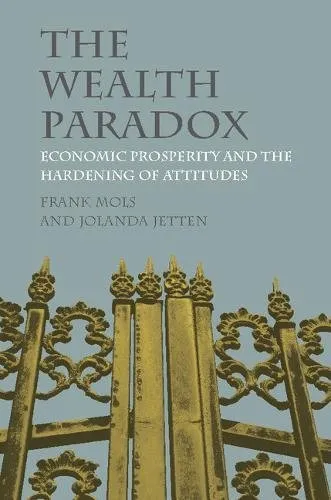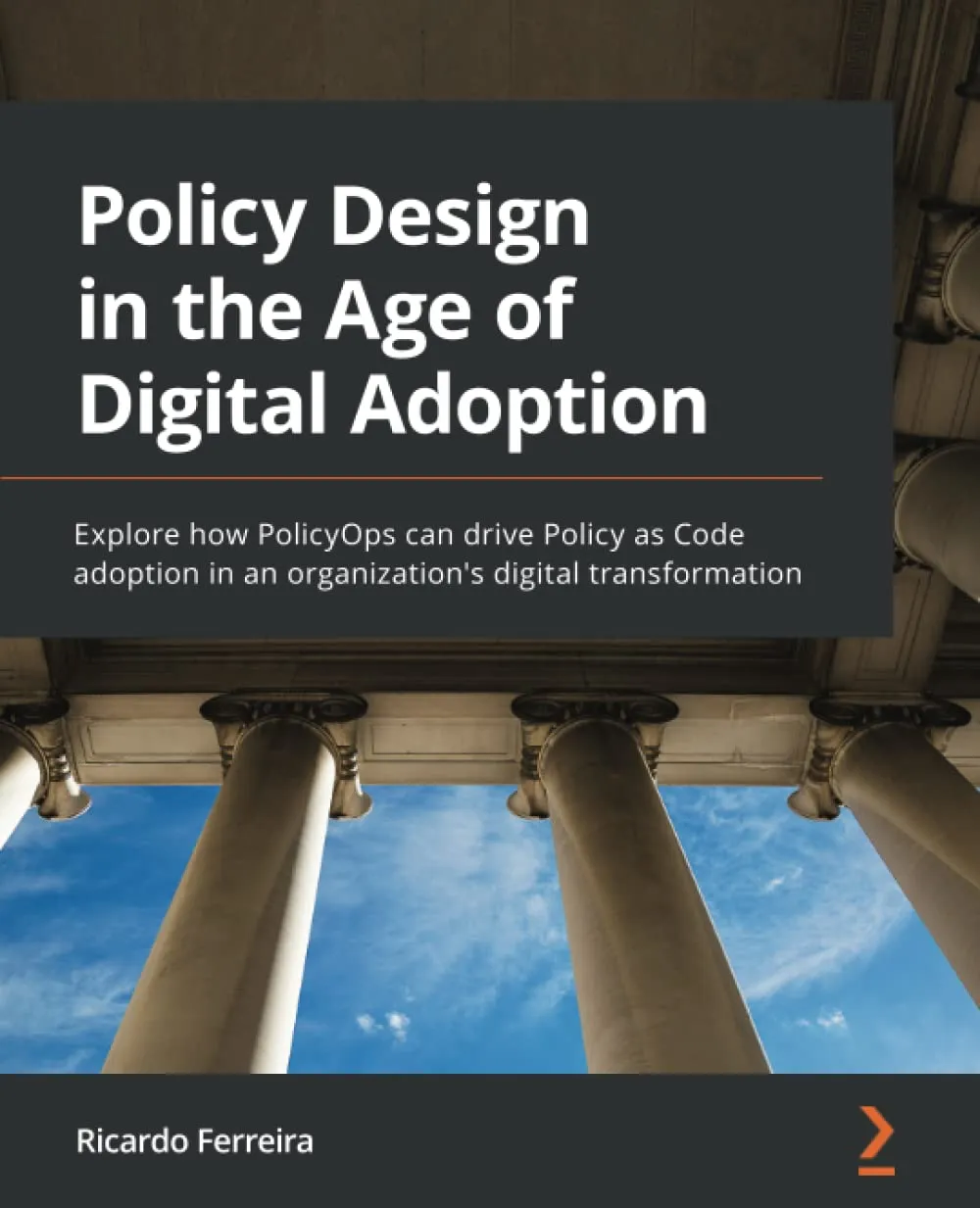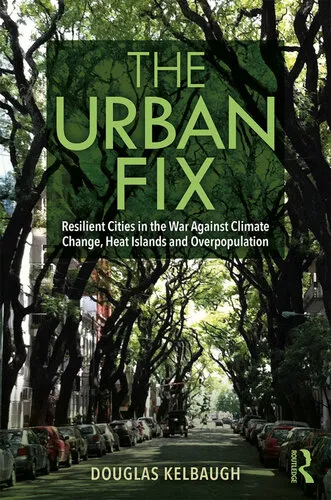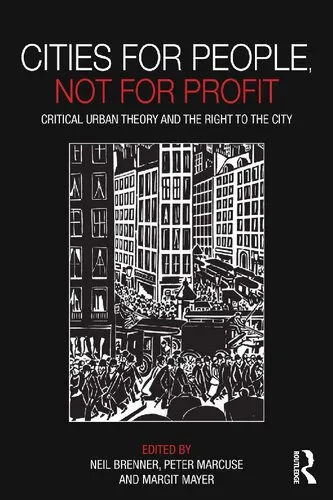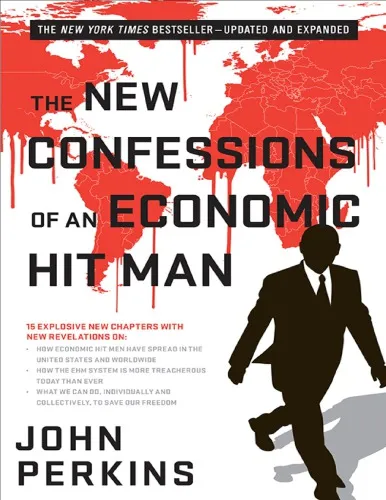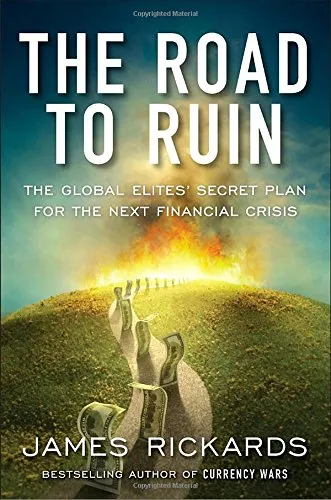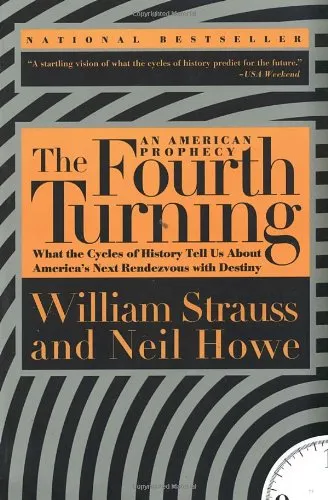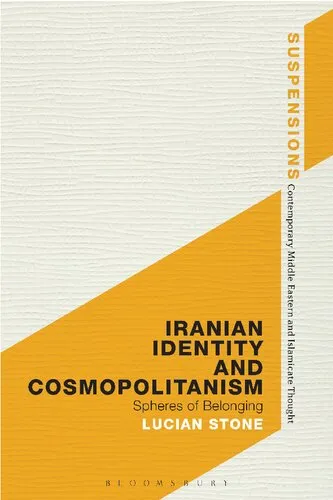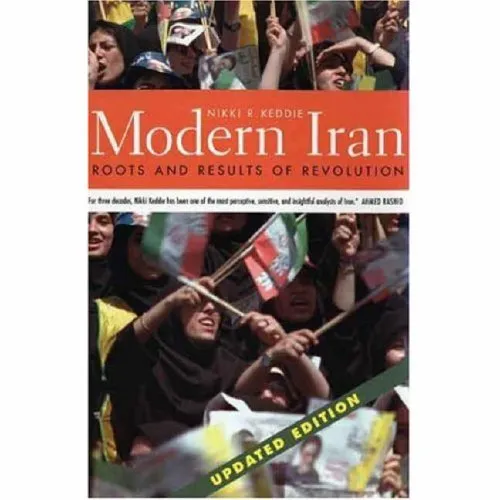The Wealth Paradox: Economic Prosperity and the Hardening of Attitudes
4.7
بر اساس نظر کاربران

شما میتونید سوالاتتون در باره کتاب رو از هوش مصنوعیش بعد از ورود بپرسید
هر دانلود یا پرسش از هوش مصنوعی 2 امتیاز لازم دارد، برای بدست آوردن امتیاز رایگان، به صفحه ی راهنمای امتیازات سر بزنید و یک سری کار ارزشمند انجام بدینکتاب های مرتبط:
معرفی کتاب 'The Wealth Paradox: Economic Prosperity and the Hardening of Attitudes'
کتاب 'The Wealth Paradox: Economic Prosperity and the Hardening of Attitudes' نوشته فرانک مولز و جولاندا جتن به بررسی تعارضات ناشی از پیشرفت اقتصادی و سختتر شدن نگرشهای اجتماعی میپردازد. این کتاب جذاب تلاش میکند تا ارتباط پیچیده بین رفاه اقتصادی و تغییرات نگرشهای جمعی را تبیین کند.
خلاصهای از کتاب
در این کتاب، نویسندگان به این واقعیت چالشبرانگیز میپردازند که چگونه با افزایش رفاه اقتصادی، میتوانیم شاهد افزایش تنظیمگرایی و نگرشهای خصمانهتر نسبت به گروههای خارجی باشیم. دیدگاه مرسوم این است که وقتی جامعهای به رفاه دست پیدا میکند، باید نگرشهای بازتر و پذیراتری داشته باشد. اما مولز و جتن نشان میدهند که این همیشه صحت ندارد و اغلب اوقات عکس این قضیه اتفاق میافتد، یعنی با افزایش امنیت اقتصادی، نگرانیها و نگرشهای محافظهکارانه نیز بیشتر میشوند.
یادگیریهای کلیدی
- رفاه اقتصادی لزوماً با نگرشهای مثبت نسبت به تنوع و مهاجرت همراه نیست.
- احساس تهدید اقتصادی حتی در میان گروههای موفق میتواند منجر به نگرشهای سختتر شود.
- فرهنگ و تاریخچه سیاسی یک جامعه در چگونگی واکنش افراد به تغییرات اقتصادی نقشی اساسی دارد.
جملات معروف از کتاب
"انتظاراتی که از رفاه داریم همیشه با واقعیتهای اقتصادی همسو نیستند، و این تناقض میتواند به شکلگیری نگرشهای محافظهکارانه بینجامد."
"لازم است که دریابیم زمانی که جامعهای به رفاه میرسد، هنوز هم میتواند نسبت به بازترین ملتها با احتیاط عمل کند."
چرا این کتاب مهم است
کتاب 'The Wealth Paradox' برای محققان، سیاستمداران و هر کسی که به دنبال درک بهتر از دینامیک بین اقتصاد و سیاستهای اجتماعی است اهمیت زیادی دارد. این کتاب تبیین میکند که چرا بعضی از جوامع حتی با وجود رفاه، به سمت نگرشهای سختتر حرکت میکنند و چرا درک این واقعیت برای اتخاذ سیاستهای موثر و پایدار اجتماعی ضروری است. با توجه به روشنگریهای علمی و پژوهشهای گسترده، این کتاب به کمک میآید تا از سوگیریهای سادهلوحانه درباره توسعه اقتصادی و پیامدهای اجتماعی آن پرهیز کنیم.
Welcome to an insightful exploration of the complex interplay between economic prosperity and societal attitudes, as we unravel the themes presented in "The Wealth Paradox: Economic Prosperity and the Hardening of Attitudes."
Detailed Summary of the Book
"The Wealth Paradox" confronts a puzzling and counterintuitive phenomenon: as societies grow wealthier, why do they sometimes exhibit greater intolerance and a hardening of attitudes? Frank Mols and Jolanda Jetten delve into the paradox of affluence, challenging the common assumption that economic development naturally leads to more liberal and open societies. Through comprehensive research, the authors demonstrate that economic prosperity can, in some cases, exacerbate feelings of insecurity and competition among social groups, leading to an increase in protectionist and exclusionary behaviors.
The book intricately examines historical and contemporary examples across various nations to illustrate how wealth can simultaneously provide a sense of security to some and engender fear and uncertainty among others. This dichotomy results in a society where despite shared prosperity, divisions grow as certain social sectors feel threatened by changes or perceive losses in status and identity.
Key Takeaways
- Prosperity and Polarization: Increased wealth does not automatically translate to increased societal harmony. Instead, the distribution and perception of wealth contribute significantly to social divisions.
- Identity and Scarcity: As wealth grows, so do battles over identity and cultural supremacy, particularly when individuals or groups perceive their status as being under threat.
- Emotional Reactions to Change: Economic growth can elicit emotional reactions such as fear and nostalgia, which influence political attitudes and behaviors, often leading to a rise in populist sentiments.
- Role of Leadership: Leaders and policymakers play a critical role in either exacerbating or alleviating tensions that arise in prosperous societies by shaping narratives around growth and identity.
Famous Quotes from the Book
"In periods of unprecedented growth, societies must be cautious not to let their prosperity blind them to the vulnerabilities it exposes within their social fabric."
"Economic prosperity offers opportunities, but it also challenges existing structures and identities, leaving societies to grapple with protecting what they have versus welcoming change."
Why This Book Matters
"The Wealth Paradox" is not just a critique of economic prosperity; it is a clarion call to reconsider how we understand the relationship between wealth and societal attitudes. In an era marked by rapid globalization and increasing wealth disparities, understanding these dynamics is crucial for crafting policies that foster genuine social cohesion. Mols and Jetten provide valuable insights into how economic gains might be harnessed to build more inclusive societies rather than further entrenching divisions.
The book offers both scholars and lay readers a nuanced perspective on why economic growth does not always yield the expected social benefits. As countries worldwide grapple with rising populism and nationalism, "The Wealth Paradox" presents an essential framework for understanding these trends, highlighting how they could be mitigated through informed leadership and inclusive policymaking.
دانلود رایگان مستقیم
شما میتونید سوالاتتون در باره کتاب رو از هوش مصنوعیش بعد از ورود بپرسید
دسترسی به کتابها از طریق پلتفرمهای قانونی و کتابخانههای عمومی نه تنها از حقوق نویسندگان و ناشران حمایت میکند، بلکه به پایداری فرهنگ کتابخوانی نیز کمک میرساند. پیش از دانلود، لحظهای به بررسی این گزینهها فکر کنید.
این کتاب رو در پلتفرم های دیگه ببینید
WorldCat به شما کمک میکنه تا کتاب ها رو در کتابخانه های سراسر دنیا پیدا کنید
امتیازها، نظرات تخصصی و صحبت ها درباره کتاب را در Goodreads ببینید
کتابهای کمیاب یا دست دوم را در AbeBooks پیدا کنید و بخرید
1477
بازدید4.7
امتیاز0
نظر98%
رضایتنظرات:
4.7
بر اساس 0 نظر کاربران
Questions & Answers
Ask questions about this book or help others by answering
No questions yet. Be the first to ask!
